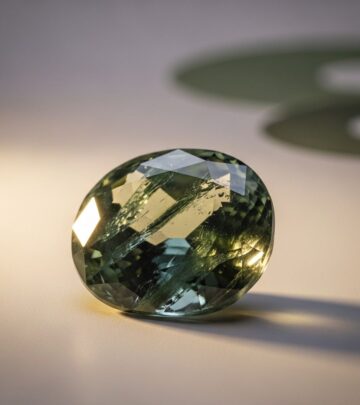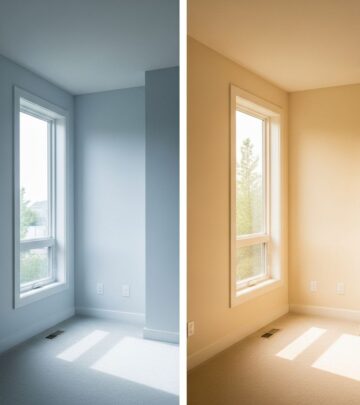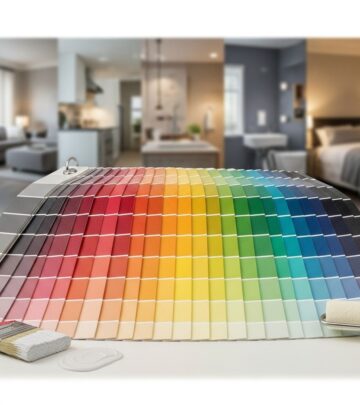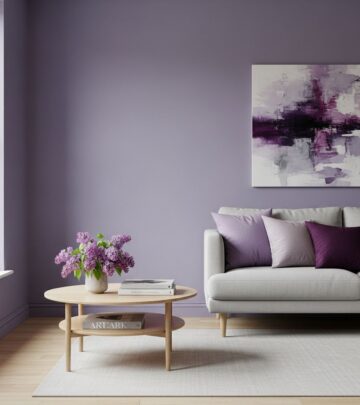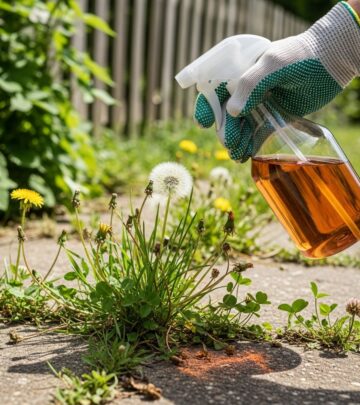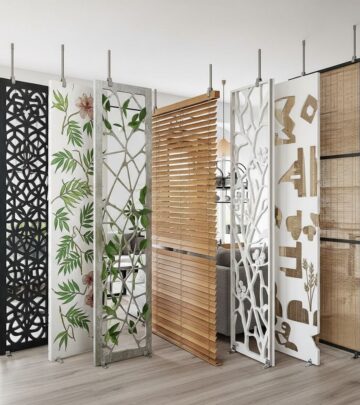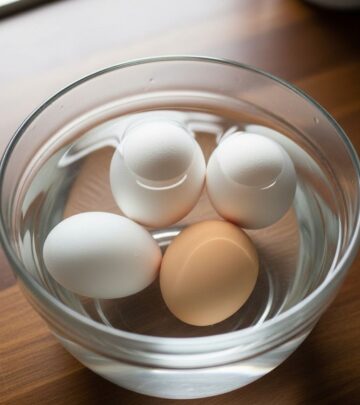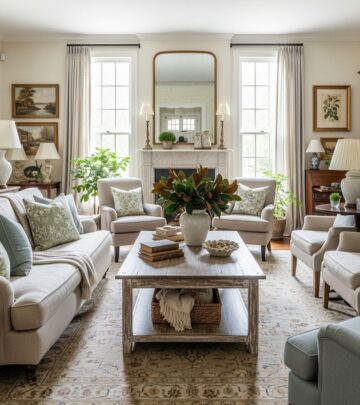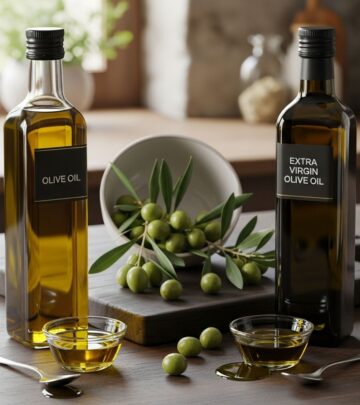Types of Flooring: Comprehensive Guide to Materials and Styles
Discover key factors to match each surface with your lifestyle, budget and design vision.
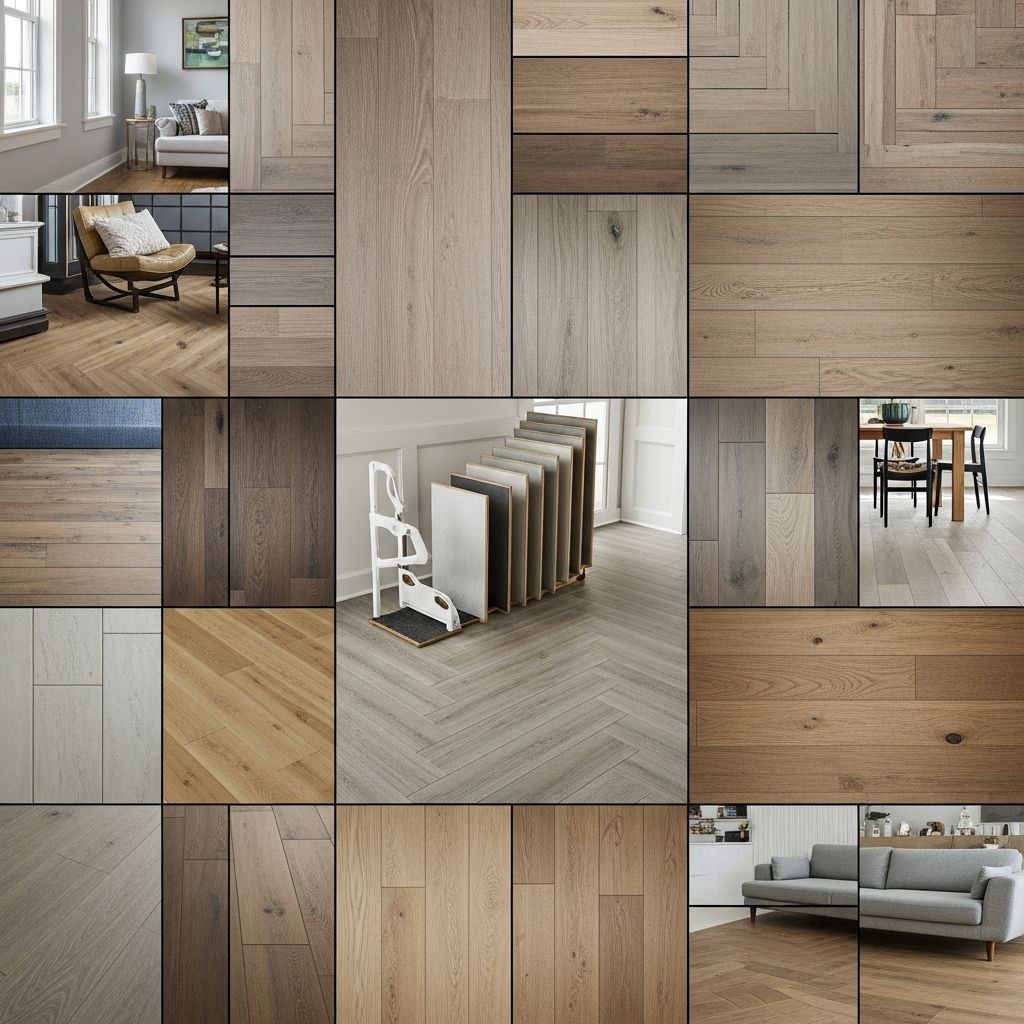
Types of Flooring: Your Guide to Materials, Styles & Installation
Choosing the right flooring for your home is a critical decision for both design and daily living. From timeless hardwoods and modern luxury vinyl to sustainable cork and bamboo, understanding the advantages and potential drawbacks of each flooring type is essential for creating a comfortable and beautiful space. This comprehensive guide covers key flooring materials and trends, with expert advice to help you decide what’s best for each room and lifestyle.
Table of Contents
- Hardwood Flooring
- Engineered Wood Flooring
- Laminate Flooring
- Vinyl Flooring
- Tile Flooring
- Bamboo Flooring
- Cork Flooring
- Carpet
- Natural Stone Flooring
- Concrete Flooring
- Specialty & Sustainable Flooring
- Frequently Asked Questions
Hardwood Flooring
Hardwood flooring stands as a classic choice for home interiors thanks to its beauty, durability, and ability to increase property value. There are two main styles:
- Solid hardwood: Crafted from a single piece of wood. Can be sanded and refinished multiple times. Popular species include oak, maple, walnut, and ash.
- Engineered hardwood: Features a veneer of real wood over layers of structural plywood, giving added resistance to moisture and temperature changes compared to solid wood.
Pros:
- Timeless visual appeal and warmth
- Long lifespan with proper care
- Sanded and refinished for a renewed look
Cons:
- Higher initial cost
- Susceptible to dents, scratches, and water damage
- May expand/contract with humidity (solid wood)
Best for: Living rooms, bedrooms, dining rooms; solid wood not recommended for bathrooms or basements due to moisture issues.
| Type | Price (Installed) | Refinishable? | Moisture Tolerance |
|---|---|---|---|
| Solid Hardwood | $5-10/sq.ft. | Yes | Low |
| Engineered Hardwood | $4-9/sq.ft. | Some (<2.5mm wear layer) | Medium |
Engineered Wood Flooring
Engineered wood flooring offers the look of real wood with improved resistance to moisture and temperature changes. Its layered construction resists warping and can be installed on all levels, making it a versatile choice for any climate. Some manufacturers offer waterproof engineered options for kitchens and bathrooms.
Pros:
- Authentic wood appearance with enhanced stability
- Installable in basements, kitchens, and over concrete
- Fewer issues with expansion/contraction
Cons:
- Limited refinishing capability
- Some budget products look less realistic
Laminate Flooring
Laminate flooring is an engineered product that replicates wood, stone, or tile using photographic layers and a durable plastic wear surface. It is mostly composed of compressed fiberboard, making it budget-friendly and DIY accessible.
Pros:
- Highly resistant to scratches, dents, stains, and sunlight
- Often sold as floating planks that click together (easy installation)
- Low maintenance and good value
Cons:
- Cannot be refinished
- May lack authenticity in appearance and feel
- Susceptible to water damage if seams are not tightly sealed
Best for: Hallways, bedrooms, living rooms, and locations needing tough, low-cost flooring.
Vinyl Flooring
Vinyl flooring has evolved from traditional sheet varieties to modern luxury vinyl plank (LVP) and luxury vinyl tile (LVT). These offer realistic patterns, resilience, and exceptional water resistance, making them a strong contender in both residential and commercial spaces.
- Standard sheet vinyl: Durable, flexible, and budget-friendly.
- LVP & LVT: Mimics stone, wood, or tile with textured surfaces. Usually feature click-together or glue-down installation methods.
- Rigid Core: Includes Stone Plastic Composite (SPC) and Wood Plastic Composite (WPC), providing complete waterproofing and enhanced durability.
Pros:
- Waterproof or highly water-resistant
- Comfortable underfoot
- Installation over uneven substrates
- Wide variety of styles and colors
Cons:
- Lower-end products may lack realism
- May be damaged by high heat
- Not as environmentally friendly as natural materials
Best for: Kitchens, bathrooms, laundry rooms, mudrooms, and basements.
Tile Flooring
Tile flooring comes primarily in ceramic or porcelain: both are made from clay mixtures but differ in hardness and water absorption.
- Ceramic tile: Softer, easier to cut, and more affordable. Wide variety of colors and patterns.
- Porcelain tile: Denser, harder, and more water-resistant; better for high-traffic and moisture-prone areas.
| Type | Price (Installed) | Durability | Waterproof |
|---|---|---|---|
| Ceramic | $4-12/sq.ft. | Medium | Yes |
| Porcelain | $5-15/sq.ft. | High | Yes |
Pros:
- Exceptional durability and longevity
- Waterproof, ideal for bathrooms and kitchens
- Easy to clean and low maintenance
Cons:
- Professional installation may be required
- Hard underfoot; may need rugs in living spaces
- Can be cold, especially in winter
Bamboo Flooring
Bamboo flooring is made from fast-growing grasses and is considered an eco-friendly alternative to hardwood. It can be manufactured as solid planks or engineered boards.
Pros:
- Renewable and sustainable resource
- Comparable hardness to hardwoods
- Unique aesthetic appeal
Cons:
- Quality varies widely between brands
- Some products are susceptible to moisture and warping
- Limited refinishing options
Best for: Bedrooms, living rooms, and spaces requiring eco-friendly solutions.
Cork Flooring
Cork flooring is harvested from tree bark, offering a unique combination of comfort, safety, and sustainability.
Pros:
- Soft, cushioned, and warm underfoot
- Non-toxic, naturally antimicrobial
- Water resistant and slip-resistant
- Eco-friendly
Cons:
- May fade with direct sunlight exposure
- Susceptible to scratches and dents from heavy furniture or pet claws
- Quality varies significantly; expert sourcing recommended
Best for: Kitchens, bathrooms, children’s playrooms, and bedrooms.
Carpet
Carpet remains a popular choice for bedrooms and family spaces requiring comfort and warmth. Modern carpets offer improved stain resistance, diverse textures, and eco-friendly wool, nylon, and polyester options.
Pros:
- Soft, absorbent, sound dampening
- Wide range of colors and styles
- Cost-effective choices available
Cons:
- Prone to stains, odors, and allergens
- Needs regular cleaning; may require professional care
- Not suitable for damp or high-traffic areas
Natural Stone Flooring
Stone flooring adds luxury and dramatic style to any space. Choices include marble, granite, travertine, slate, and limestone. Each stone offers distinct color and texture.
Pros:
- Unmatched natural beauty
- Extremely durable and long-lasting
- Cool underfoot, ideal for warm climates
Cons:
- High cost
- Requires professional sealing and maintenance
- Can be slippery when wet
Concrete Flooring
Concrete flooring is increasingly used in modern homes for its industrial style, versatility, and low maintenance requirements.
Pros:
- Exceptionally durable
- Customizable with stains, dyes, or polishing
- Easy to clean and maintain
Cons:
- Hard, cold surface
- May require professional installation and finishing
- Can crack or discolor if not sealed or maintained properly
Specialty & Sustainable Flooring Options
Waterproof Flooring
- Waterproof hardwood: Combines real wood’s beauty with waterproof technology. Ideal for kitchens, bathrooms, and basements.
- SPC/Rigid core vinyl: Fully waterproof, durable, and mimics wood or stone textures.
Sustainable Flooring Choices
- Bamboo: Rapid renewability, variety of finishes.
- Cork: Natural and antimicrobial.
- Recycled materials: Options include recycled glass tiles and carpets with recycled fiber content.
Frequently Asked Questions (FAQs)
Q: What is the most durable type of flooring?
A: Tile (especially porcelain), luxury vinyl plank (LVP), concrete, and certain stone floors are among the most durable choices for high-traffic and moisture-prone spaces.
Q: Which flooring is best for pets?
A: Waterproof vinyl, engineered hardwood (with a tough wear layer), tile, and cork are preferred for households with pets due to scratch, stain, and moisture resistance.
Q: Can hardwood be installed below grade?
A: Engineered hardwood and waterproof wood flooring are suitable for basements, while solid wood is best kept above grade because of its lower moisture tolerance.
Q: Are sustainable floors as durable as conventional floors?
A: High-quality bamboo and cork flooring provide comparable resilience to traditional wood and tile, though product quality should be carefully considered for longevity.
Q: What is the average cost to install flooring?
A: Costs vary by material and installation method. Hardwood ranges from $4–$10/sq.ft.; tile from $4–$15/sq.ft.; laminate from $3–$7/sq.ft.; luxury vinyl $2–$7/sq.ft.; carpet around $2–$8/sq.ft.; and stone from $10–$30/sq.ft.
Expert Tips for Choosing Flooring
- Factor in foot traffic, sunlight, pets, moisture, and allergy concerns when selecting flooring for each room.
- Always consider maintenance requirements and refinishing options.
- Consult professional installers for complex materials like tile, stone, or in-floor heating systems.
- Request manufacturer warranties and certifications (especially for air quality and sustainability).
- Order samples before committing to a full installation to see real-life color and texture.
Conclusion
Your choice of flooring transforms the function and atmosphere of your home. Whether you prefer the elegance of hardwood, the resilience of tile, or the eco-friendly benefits of bamboo or cork, understanding the pros, cons, and costs of each option will ensure lasting satisfaction and style.
References
- https://www.goodhousekeeping.com/home/renovation/a40617015/best-flooring-guide/
- https://twentyandoak.com/faq/how-to-choose/a-definitive-guide-to-different-types-of-flooring-options
- https://www.consumerreports.org/home-garden/flooring/buying-guide/
- https://www.youtube.com/watch?v=ry-3FKFsxyg
- https://www.youtube.com/watch?v=i-LAnShDPZc
- https://mikeysboard.com/threads/dear-chat-gpt-please-tell-me-how-to-best-train-someone-to-learn-how-to-properly-id-flooring-types.304315/
Read full bio of medha deb

